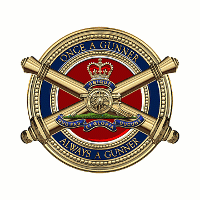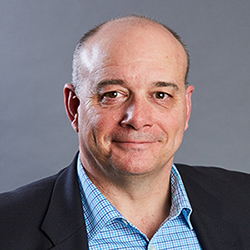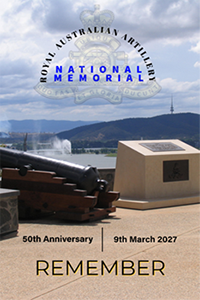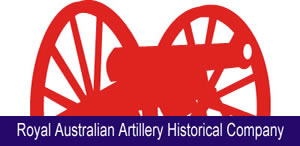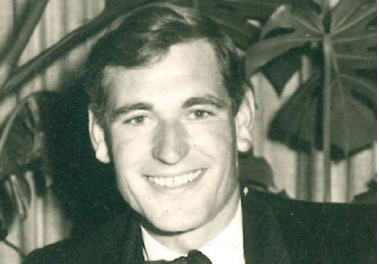His first regimental posting was with 4th Field Regiment, then at Wacol, on the outskirts of Brisbane. Here, regimental training continued under some notably demanding commanding officers until, in August 1966 he deployed to Vietnam as a member of the Australian Army Training Team - Vietnam (AATTV). After initial briefings in Saigon, Malcolm, then known as ‘Clagg’, spent time at the Combined Studies Division (CSD) base in Hoi An, Quang Nam Province. His duties included training and managing Revolutionary Development (RD) Cadre Teams, and involvement in the District Intelligence Operations Coordinating Centre and Provincial Intelligence Coordinating Centre. The Americans were much impressed with Clagg's works in Quang Nam, and this is reflected in the correspondence seeking his continuation in post. His extension was agreed by AATTV on the arguments that the Americans wanted him, and that he was young, single and willing. Clagg served with AATTV for some 20 months, finishing in May 1968.
On leaving Vietnam, a perhaps bemused Clagg was posted to 111th Light Antiaircraft Battery (LAA Bty) at Butterworth in Malaya. On rotation of the batteries, he stayed on as Battery Captain of 110th LAA Bty until November 1969.
The origins of his nickname, Clagg, are uncertain but he bore it comfortably. He dealt with the difficulty of remembering names by addressing all females as 'Darling' and his contemporaries and friends as 'Twinkle Toes'. On notable occasions the latter term included Commanding Officers, presumably inadvertently, but not without repercussions.
During the latter half of 1968, Clagg took leave to return home to England on personal business and his next posting was to Headquarters 28th Commonwealth Infantry Brigade at Terendak in Malaya. He remained there until February 1971 when he was posted to 1st Field Regiment in Brisbane.
In early 1973, Clagg was posted to Headquarters Central Command, before a posting to 4th Training Centre in Adelaide. In November 1975 he was posted as an instructor at the OCS Portsea, thus returning to where he had started his military career.
In January 1968 Clagg was posted as Second in Command (2IC) of 16th Air Defence Regiment at Woodside. Although he had previously had a posting to an Air Defence Battery, he was considered a ‘pucka’, ie a Field Gunner. Clagg had married Jan and they bought a house not far from the Regiment on Oakbank Creek. Apparently in winter when it flooded, Clagg would press-gang the Subbies of the Regiment into sandbag duties around his property. He also organised an Officers’ Mess Annex at the Oakbank Easter Jump Races – a very popular event and well supported by the Regiment, until officialdom from the Military District Headquarters saw all the green tents on display. Lieutenant Colonel Greg Flinn (Retd) remembers Clagg as a great 2IC and even better PMC of the Officers’ Mess. He recalls: “Clagg was the ultimate gentleman, and his champagne cocktails at the welcome to a mixed dining-in night, always got the women in the mood!”
Clagg was appointed a Member of the Order of the British Empire (MBE) in the New Year's Honours List 1981 (Military Division) for service to the Air Defence Regiment. It was during his time with the Regiment that Rapier was introduced and provided many administrative issues for the Regiment. Gerry Warner recalls that “We often discussed matters as we walked to the Mess, with Clagg concluding that he would keep the matter under his hat – and that’s where odd documents and drafts went – with his peak cap becoming higher and more out of shape than normal.”
After leaving the Air Defence Regiment, Clagg was posted to Headquarters 4th Military District which included an attachment to District Support Unit Adelaide. Clagg discharged from the Regular Army in October 1986 and remained with the Army Reserve until November 1989.
Clagg and Jan had four children; three sons and a daughter. Jan died in 2017. They had separated earlier but maintained a supportive relationship.
Clagg moved to the Ipswich region and, in semi-retirement, took employment as operations manager of a prison at Wacol, thus completing a neat circuit, even though by then the old barracks had largely gone, many decades after being condemned following the departure of American troops at war's end.
Clagg's Honours & Awards fall into two groups. Those reflected on his Record of Service comprise the Australian Active Service Medal 1945-75 with Clasp Vietnam; Vietnam Medal; Defence Force Service Medal with First Clasp; National Medal; Australian Defence Medal; Vietnamese Campaign Medal; United States of America Meritorious Unit Commendation; Republic of Vietnam Cross of Gallantry with Palm Unit Citation and the Returned from Active Service Badge.
Additionally, there were found amongst Clagg's Army files and personal papers citations for several United States awards, and some from the then South Vietnam government. These either had not made it along the tenuous chains of command from Quang Nam Province or had not been actioned, given the Australian government's then position on the acceptance of individual foreign awards.
In later years, the American awards were pursued on Clagg's behalf by a friend. Fortuitously, Clagg's American commander, Colonel John Murtha, United States Marine Corps (USMC), had prospered greatly and was now Congressman Murtha and, importantly, Chair of the Defence Services Committee of Congress, a most influential position. Notwithstanding this advantage it took many years and much correspondence to steer matters through the USMC, the Secretary of Navy and, particularly, our own Department of Prime Minister & Cabinet.
The outcome was that Clagg's entitlement to a Bronze Star, a US Navy Commendation, and a US Navy & Marine Corps Commendation Medal with 'V' emblem were formally endorsed by Australian authorities.
However, there is a second Bronze Star, though actually it arrived first. It arrived directly from Congressman John Murtha with a personal note commencing: 'Dear 007 …'. It is unclear whether this award was ever formally endorsed by Australian authorities, but a reading of the surviving citations leaves little doubt that he earned both, and then some.
As for the South Vietnam government recommendations, well, they lapsed with the fall of that country.
Malcolm Wilkinson died on the 2nd of February 2019 with his funeral held on the 28th of February 2019 at Centenary Gardens near Wacol. He was 79.
Acknowledgements:
The following have either supplied information or passed on messages from others. Their input is acknowledged and appreciated.
- Iain Macinnis
- Ian Gill
- Gerry Warner
- Bob McEvoy
- Mike Grimes
- Greg Flinn
- Neil Graham
- Geoff Annett
- Jason Neville
- Peter Gore
- Rick Ryan
|
